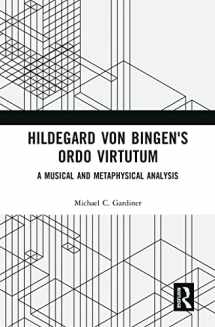
Hildegard von Bingen's Ordo Virtutum: A Musical and Metaphysical Analysis
Book details
Summary
Description
The Ordo Virtutum, Hildegard von Bingen’s twelfth-century music-drama, is one of the first known examples of a large-scale composition by a named composer in the Western canon. Not only does the Ordo’s expansive duration set it apart from its precursors, but also its complex imagery and non-biblical narrative have raised various questions concerning its context and genre. As a poetic meditation on the fall of a soul, the Ordo deploys an array of personified virtues and musical forces over the course of its eighty-seven chants. In this ambitious analysis of the work, Michael C. Gardiner examines how classical Neoplatonic hierarchies are established in the music-drama and considers how they are mediated and subverted through a series of concentric absorptions (absorptions related to medieval Platonism and its various theological developments) which lie at the core of the work’s musical design and text. This is achieved primarily through Gardiner’s musical network model, which implicates mode into a networked system of nodes, and draws upon parallels with the medieval interpretation of Platonic ontology and Hildegard’s correlative realization through sound, song, and voice.


We would LOVE it if you could help us and other readers by reviewing the book
Book review



